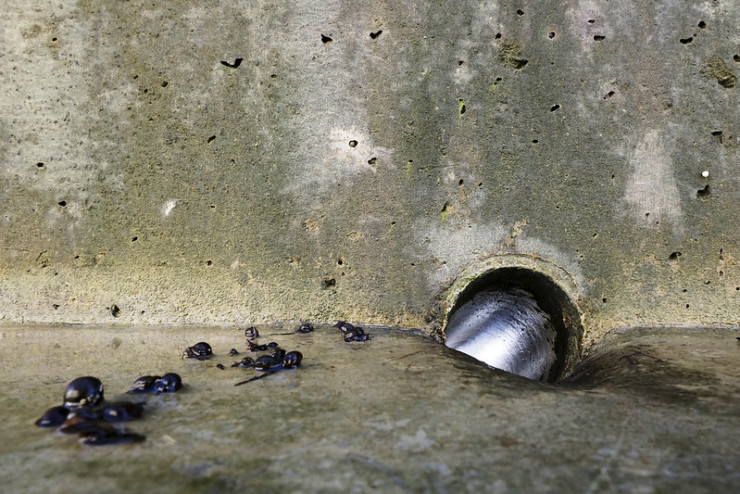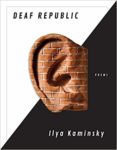
Editor’s Note: We’re reading Deaf Republic together in our book club this month. If you’re just joining us, catch up first by reading the Announcement and Act One.
________
In this second act of Ilya Kaminski’s dramatic collection, Deaf Republic, the story picks up after the arrests and execution of the first act’s protagonists, Sonya and Alfonso. The couple were puppeteers in a city held under the repressive boot of an army. Following the murder of Sonya’s young cousin, Petya, at a puppet show, the townspeople all lose their hearing. Sonya and Alfonso also met a terrible fate. Their infant daughter, Anushka, was hidden away by Momma Galya Armolinskaya.
Momma Galya is seen as a powerful force in Vasenko’s effort to hold itself together. The poet describes her in the Dramatis Personae (cast of characters) as the “puppet theater owner, instigates insurgency, and the ‘I’ of Act Two.” In the opening poem he recounts her daily insurgency against the soldiers and their efforts to thwart her activities:
Wanting to arrest her,
the soldiers
visit her theater—and come back to her theater every night.
The poem ends remarking that by day she pedals around the soldiers on her bicycle “barefoot wearing just shorts” and seeming to explain why they’ve not yet been able to bring themselves to stop her:
And let the law go whistle.
She’s well regarded by the townspeople for a time, even to the point that some seem to wish they were more like her, engaging in similar activities. But they recognize, at the least, the work she’s doing. In the poem “When Momma Galya First Protested,” the townspeople say:
On a night like this God’s got an eye on her
but she isn’t a sparrow.
In a time of war
She teaches us how to open the door
and walk
through
which is the true curriculum of schools.
While Momma Galya is on the stage, her puppeteers perform certain . . . favors . . . for the soldiers which allow them to get close enough, while the soldier is vulnerable, to kill them in their own quiet insurrection. “Galya’s Puppeteers” tells the story in graphic detail and concludes with the very matter-of-fact:
As the soldiers lined up downstairs to raise a toast to Momma Galya, they don’t see the puppeteers drag the body out back.
Beautiful are the women of Vasenka, beautiful.
Hello, love. The door opens and she motions another soldier to come in.
The poems are striking in their physicality, punched with the great discomfort that can come with a poem that connects to a reader’s body, and by the time Momma Galya’s body has nothing left to give in the end, the reader has seen nearly every part of her. But the poet also connects us to the body of the baby, Anushka. In “In Bombardment, Galya,” Kaminsky writes:
In the twenty-seventh day of aerial bombardment, I
have nothing except my body, and the walls of this empty apartment flat and flap like a lung.
He goes on, connecting the bodies of Galya and Anushka further:
This body I testify from is a binoculars through which you watch, God—
a child clutches a chair,
while the soldiers (their faces are molded from inside by words) arrest all my people, I
run and the flag is the towel the wind dries its hands on.
While they tear off the doors to my empty
apartment—I am in another apartment smiling as the child clutches a chair,
wobbles
toward you and me, God.
In time, there is an escalation with the executions, punishing the women for killing their fellows, as Momma Galya relates in “Firing Squad:”
a child learns the world by putting it in her mouth,
a girl becomes a woman and a woman, earth.
Body, they blame you for all things and they
seek in the body what does not live in the body.
In their grief, the townspeople turn on Momma Galya for the deaths of their relatives, and tragically, this ultimately leads to her violent end. In “Anonymous,” a witness laments there were “too many bodies and / not enough people— / too many ears and no one attached to them,” reminding us of the ever-present question of what makes a person human. Galya argued earlier that “Yet, I am. I exists. I has / a body.” And it’s a debatable question, sometimes, what the body makes of us.
Ultimately, there was surrender, followed by the inevitable forgetting, or denial, or some combination of them both.
Years later, some will say none of this happened, the shops were open, we were happy and went to see puppet shows in the park.
But there was also a glimmer of hope:
And yet, on some nights, the townspeople dim the lights and teach their children to sign. Our country is the state: when patrols march, we sit on our hands. Don’t be afraid, a child signs to a tree, a door.
And I question, then, from a body, whether that hope, too, might be its own kind of inevitable.
________
Deaf Republic Book Club
We’re reading Ilya Kaminsky’s Deaf Republic together this month. Are you reading along? Share your thoughts on these difficult but poignant poems with us in the comments.
March 11: Act 1
March 18: Act 2
To learn more about this collection, read Glynn Young’s review of Deaf Republic.
Get inbox book club delivery
Our book club discussions are a patron perk. $5 patrons can opt to get each book club edition delivered in full straight to their inboxes, with a photo and link to the discussion!
Photo by Peter Castleton, Creative Commons license via Flickr. Post by Will Willingham.
- Earth Song Poem Featured on The Slowdown!—Birds in Home Depot - February 7, 2023
- The Rapping in the Attic—Happy Holidays Fun Video! - December 21, 2022
- Video: Earth Song: A Nature Poems Experience—Enchanting! - December 6, 2022


Leave a Reply